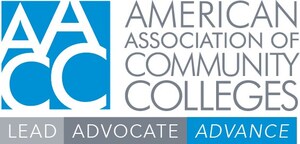
Final Gainful Employment Regulations Fail Students, Institutions And The Public
WASHINGTON, Oct. 30, 2014 /PRNewswire-USNewswire/ -- The American Association of Community Colleges (AACC) believes that the U.S. Department of Education's final gainful employment (GE) regulations are deeply flawed. The regulations aim to provide meaningful information to enable students to choose a GE program that best meets their needs, but instead impose massive reporting, recordkeeping and related costs on community colleges that largely will provide no benefit to students, taxpayers or the public. The nation's community college leaders deeply regret the fact that, after years of deliberation and two extensive rulemaking processes, the Education Department has issued a rule that involves extraordinary amounts of "make work" compliance at community colleges across the country, at a time when they can little afford it.
The final GE rule also reflects a missed opportunity to promulgate regulations that hold institutions accountable for providing high-quality career education and training to students without unmanageable debt.
"Community colleges proudly offer access at an affordable cost to gainful employment programs to millions of students each year. Our institutions and programs judiciously allocate limited resources for the benefit of our students who are working to improve their lives through these programs," said AACC President and CEO Walter G. Bumphus.
Though the regulations will allow nearly all community college gainful employment programs to continue their Title IV eligibility, "the millions of dollars in compliance costs that these the final regulations will entail will largely be wasted—a frittering away of precious and limited institutional resources," Bumphus said.
In its formal regulatory comments, AACC proposed that institutional reporting requirements be made consistent with related disclosure thresholds, which must meet minimum size standards to protect privacy and provide representative samplings. These comments were rejected by the department, with the result that colleges must report data on hundreds of thousands of students for which no information will ever be disclosed to the public.
Furthermore, because the GE scheme only includes Title IV recipients, with a focus on federal loan borrowers, the entire framework's applicability to community colleges is limited. Only 9 percent of community college students in GE programs borrow under the federal loan programs and only 36 percent receive any Title IV aid.
AACC strongly supports the disclosure of relevant information to prospective students. Therefore, AACC supported requiring colleges to provide for GE programs, where applicable, the placement rate for the program; program completion rates for full-time and less-than-full-time students at appropriate benchmarking junctures; median earnings for all program completers; and median debt for program completers and those who withdraw. The association opposed many of the disclosures contained in the final rule, as they will be extremely difficult for prospective students to understand and make meaningful to their own situation.
In the months leading to July 2015 when the final GE regulations go into effect, Bumphus urges the department to provide the necessary guidance to colleges as they prepare to implement them.
As the voice of the nation's community colleges, the American Association of Community Colleges (AACC), delivers educational and economic opportunity for 13 million diverse students in search of the American Dream. Uniquely dedicated to access and success for all students, AACC's nearly 1,200 member colleges provide an on-ramp to degree attainment, skilled careers and family-supporting wages. Located in Washington, D.C., AACC advocates for these not-for-profit, public-serving institutions to ensure they have the resources and support they need to deliver on the mission of increasing economic mobility for all.
SOURCE American Association of Community Colleges






Share this article